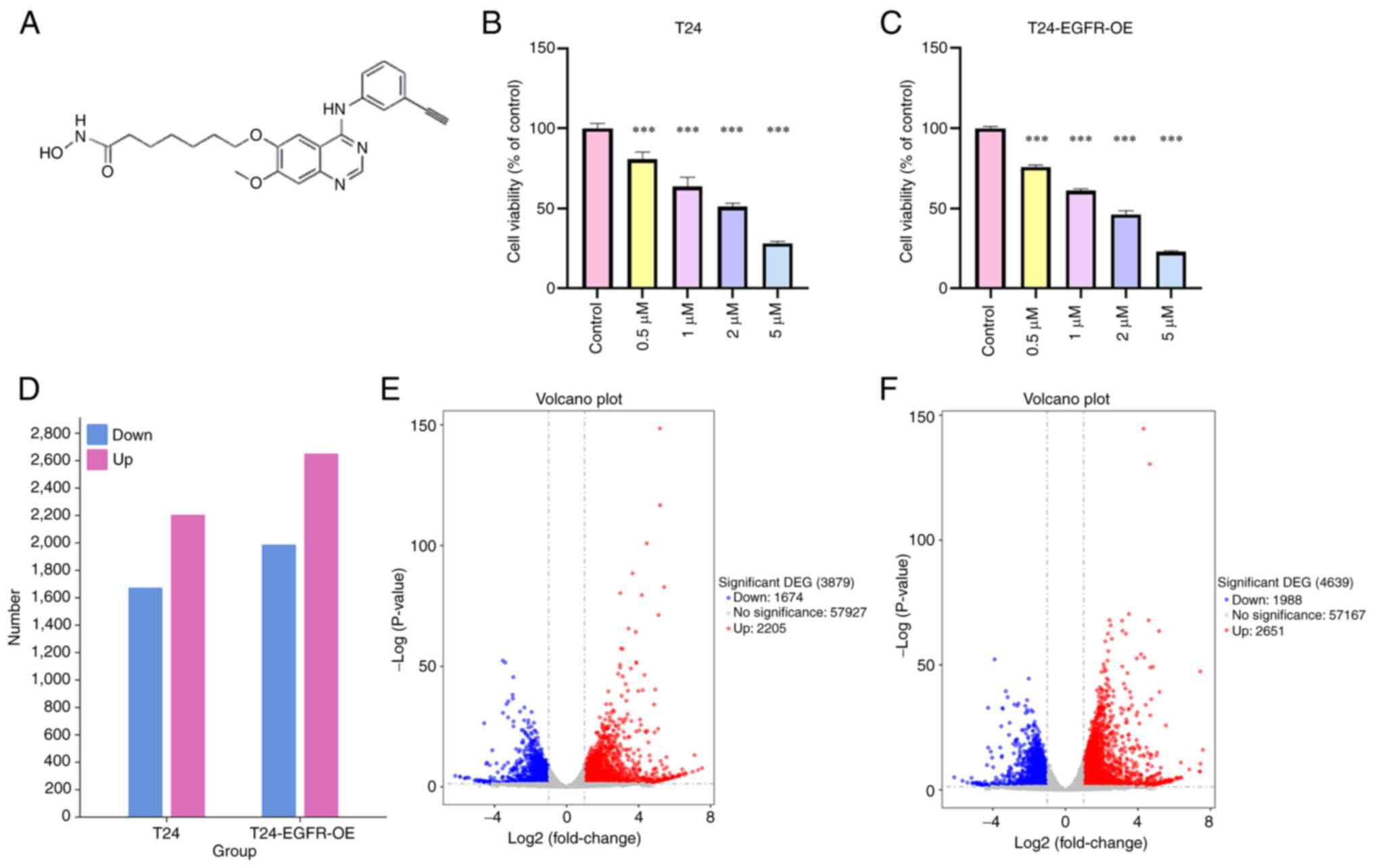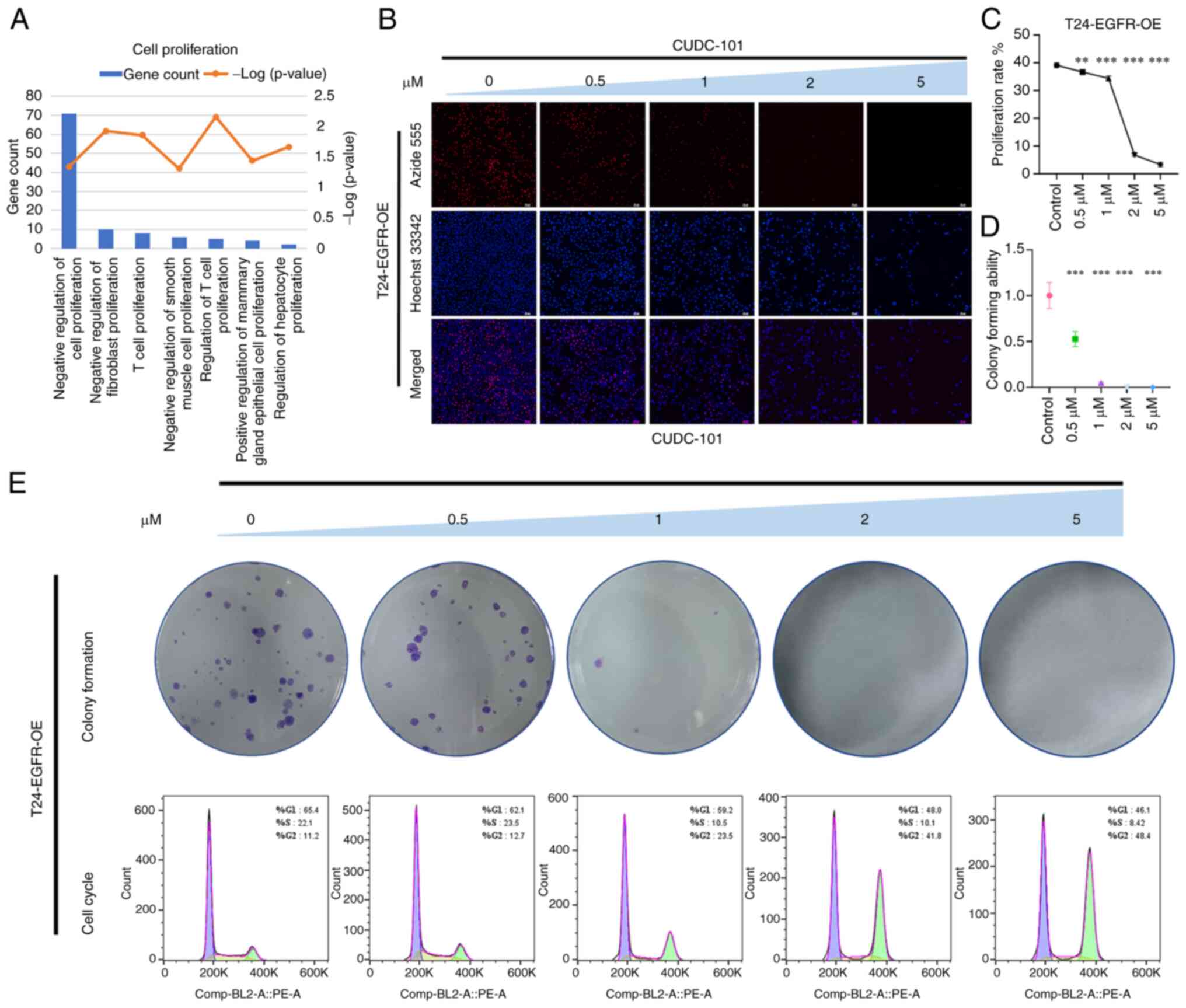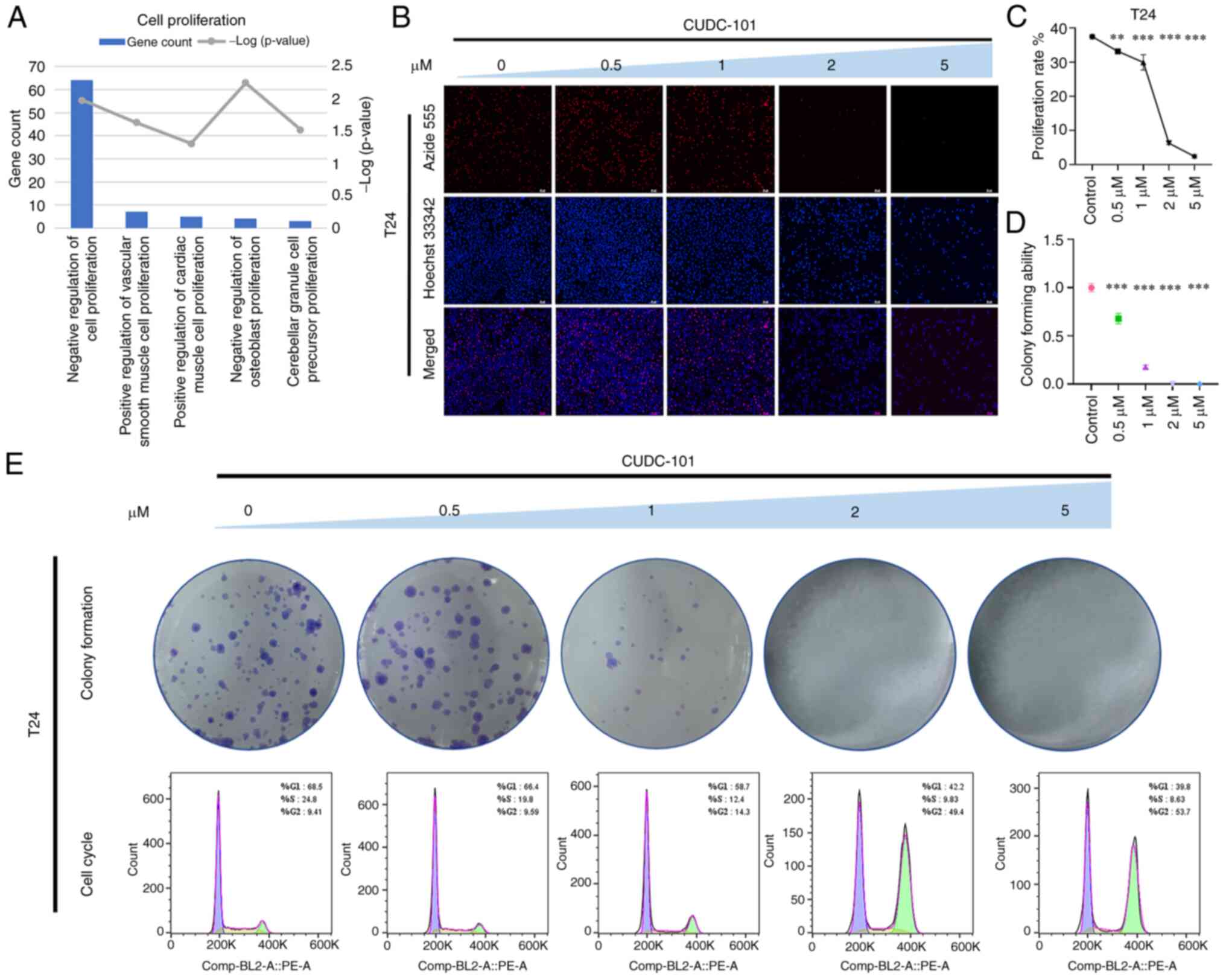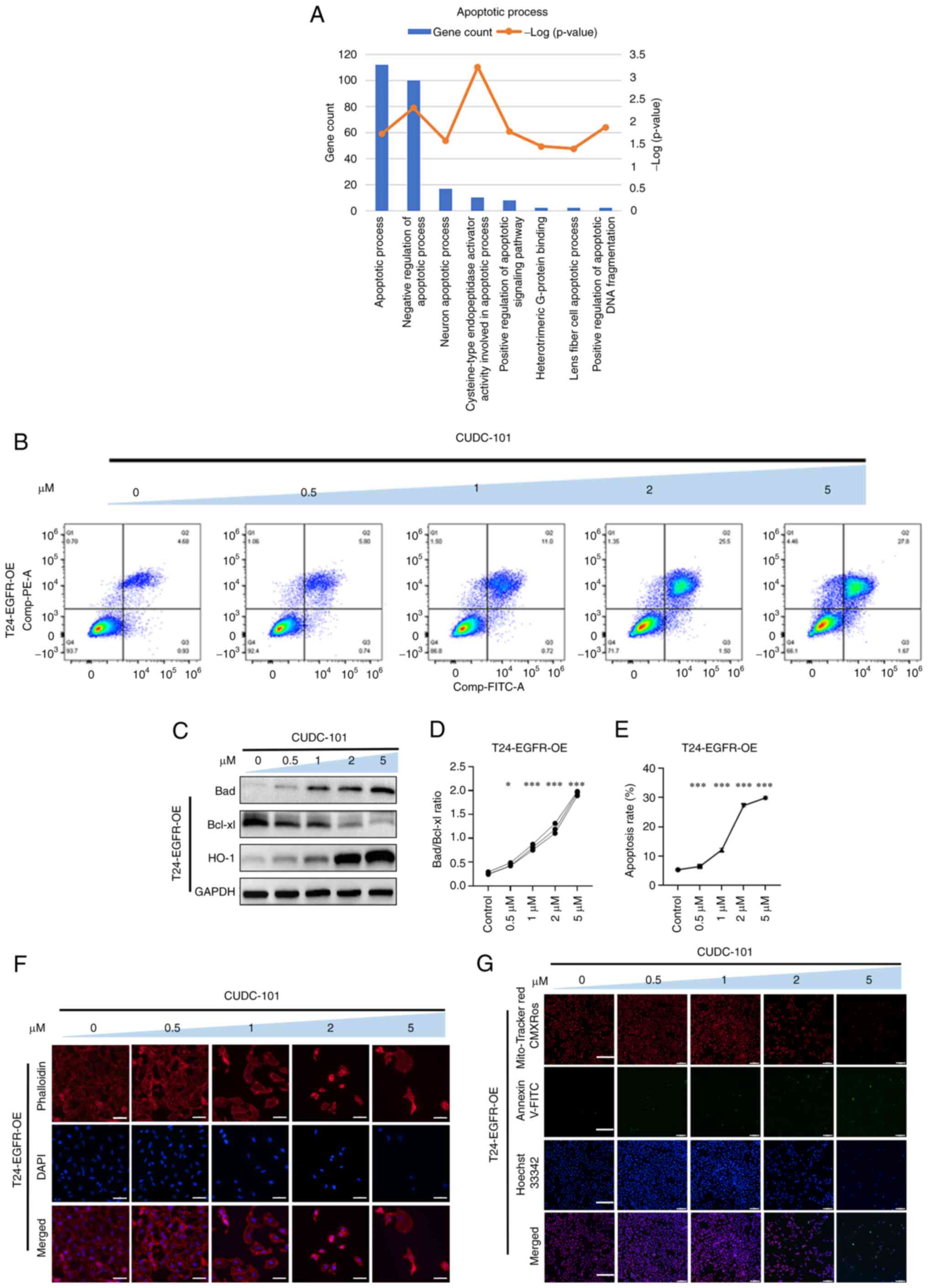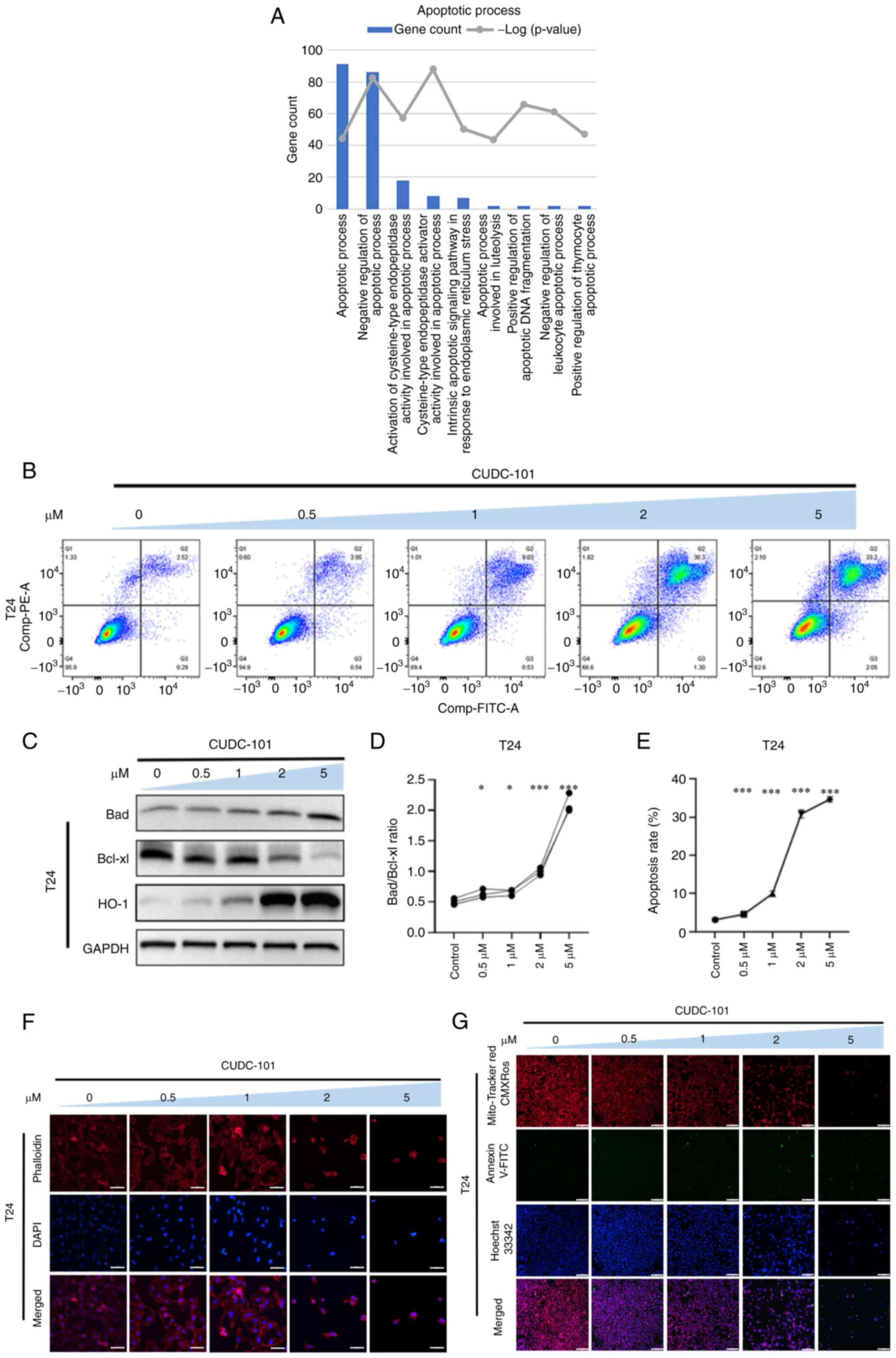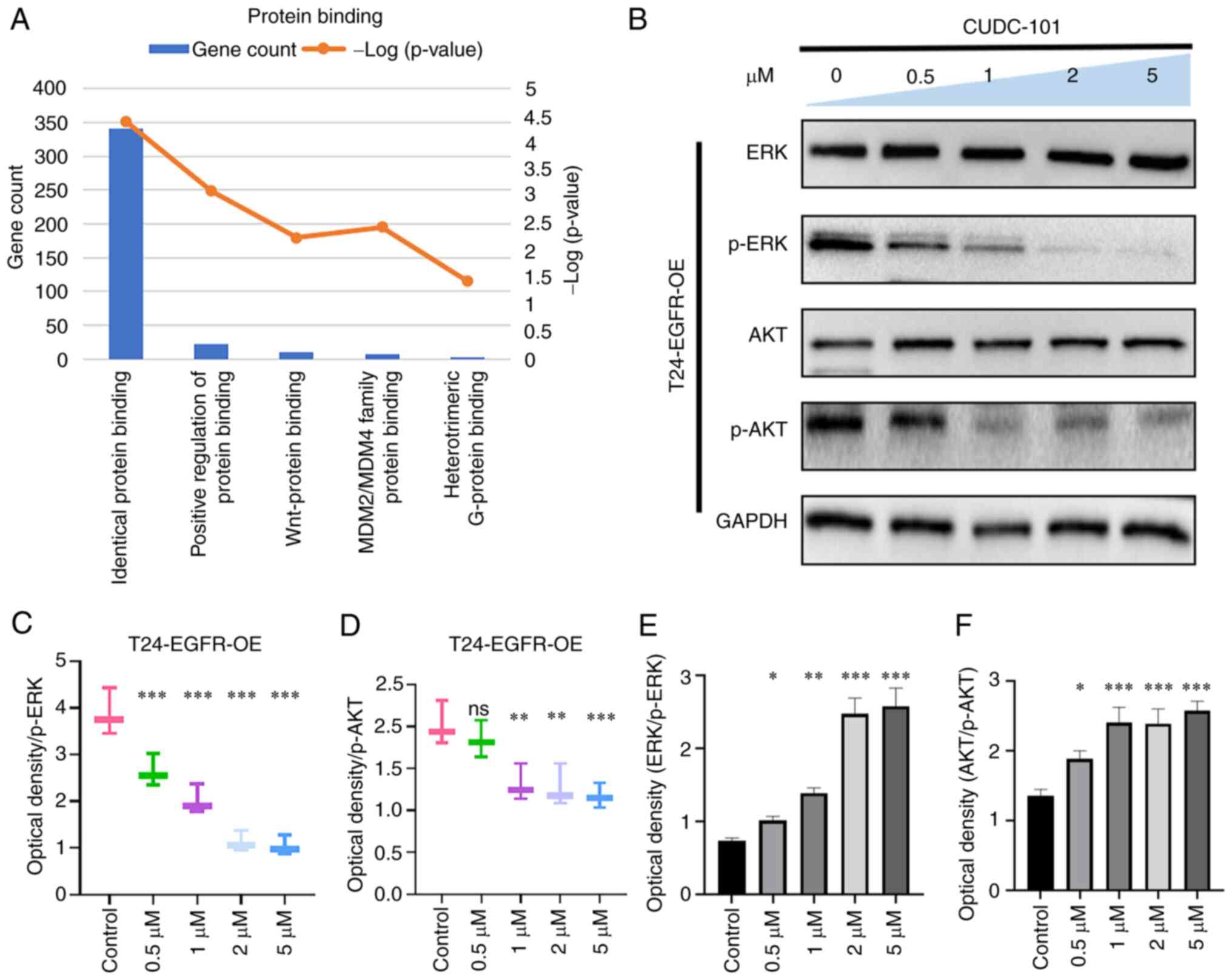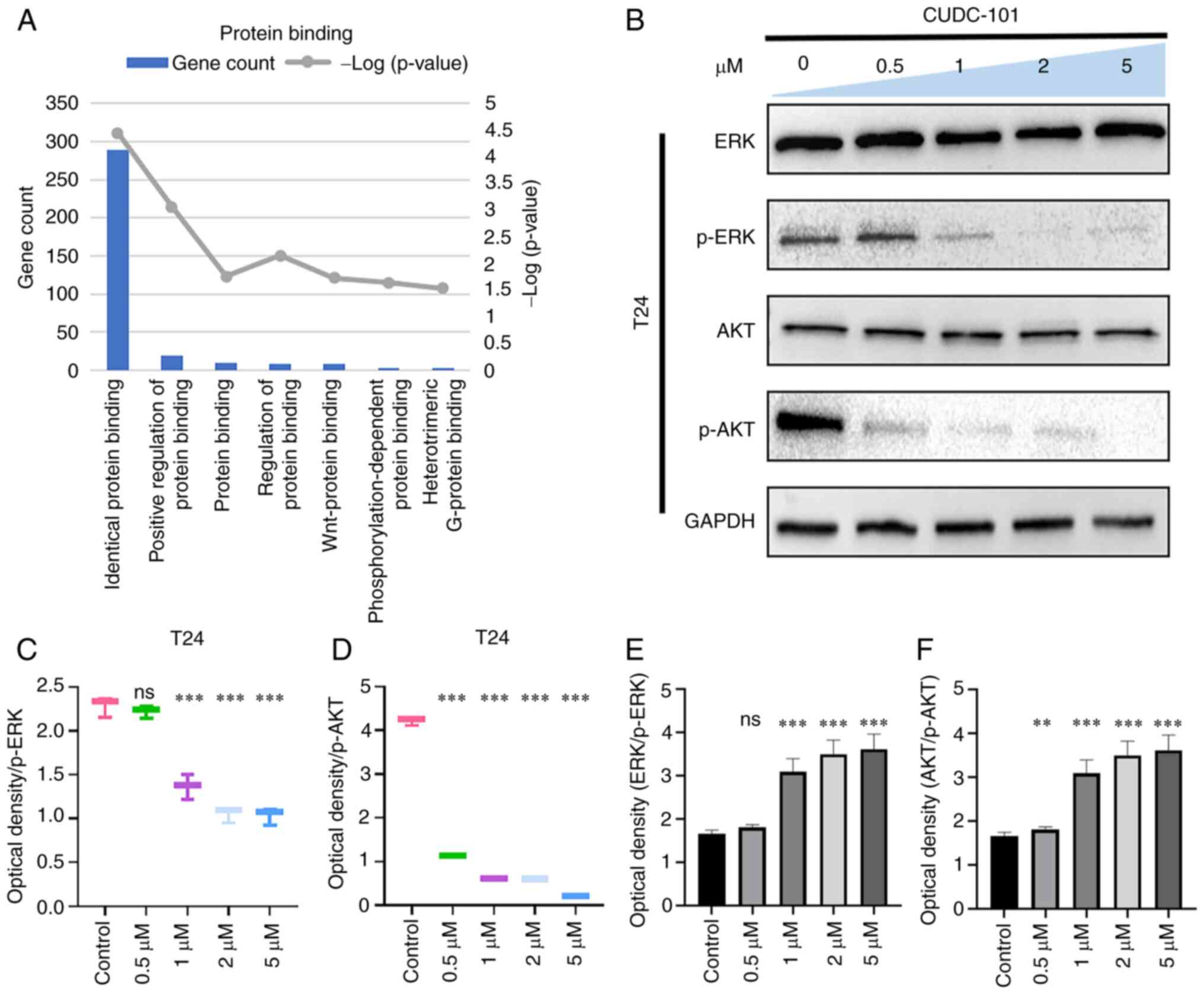|
1
|
Dobruch J and Oszczudlowski M: Bladder
cancer: Current challenges and future directions. Medicina
(Kaunas). 57:7492021. View Article : Google Scholar : PubMed/NCBI
|
|
2
|
Sung H, Ferlay J, Siegel RL, Laversanne M,
Soerjomataram I, Jemal A and Bray F: Global cancer statistics 2020:
GLOBOCAN estimates of incidence and mortality worldwide for 36
cancers in 185 countries. CA Cancer J Clin. 71:209–249. 2021.
View Article : Google Scholar : PubMed/NCBI
|
|
3
|
Kim IH and Lee HJ: Perioperative systemic
treatment for muscle-invasive bladder cancer: Current evidence and
future perspectives. Int J Mol Sci. 22:72012021. View Article : Google Scholar : PubMed/NCBI
|
|
4
|
Lenis AT, Lec PM, Chamie K and Mshs MD:
Bladder cancer: A review. JAMA. 324:1980–1991. 2020. View Article : Google Scholar : PubMed/NCBI
|
|
5
|
Guo CC and Czerniak B: Bladder cancer in
the genomic era. Arch Pathol Lab Med. 143:695–704. 2019. View Article : Google Scholar : PubMed/NCBI
|
|
6
|
Masuda H, Zhang D, Bartholomeusz C,
Doihara H, Hortobagyi GN and Ueno NT: Role of epidermal growth
factor receptor in breast cancer. Breast Cancer Res Treat.
136:331–345. 2012. View Article : Google Scholar : PubMed/NCBI
|
|
7
|
O'Leary C, Gasper H, Sahin KB, Tang M,
Kulasinghe A, Adams MN, Richard DJ and O'Byrne KJ: Epidermal growth
factor receptor (EGFR)-mutated non-small-cell lung cancer (NSCLC).
Pharmaceuticals (Basel). 13:2732020. View Article : Google Scholar : PubMed/NCBI
|
|
8
|
Jaiswal BS, Kljavin NM, Stawiski EW, Chan
E, Parikh C, Durinck S, Chaudhuri S, Pujara K, Guillory J, Edgar
KA, et al: Oncogenic ERBB3 mutations in human cancers. Cancer Cell.
23:603–617. 2013. View Article : Google Scholar : PubMed/NCBI
|
|
9
|
Roskoski R Jr: The ErbB/HER family of
protein-tyrosine kinases and cancer. Pharmacol Res. 79:34–74. 2014.
View Article : Google Scholar
|
|
10
|
Arteaga CL and Engelman JA: ERBB
receptors: From oncogene discovery to basic science to
mechanism-based cancer therapeutics. Cancer Cell. 25:282–303. 2014.
View Article : Google Scholar : PubMed/NCBI
|
|
11
|
Sabbah DA, Hajjo R and Sweidan K: Review
on epidermal growth factor receptor (EGFR) structure, signaling
pathways, interactions, and recent updates of EGFR inhibitors. Curr
Top Med Chem. 20:815–834. 2020. View Article : Google Scholar : PubMed/NCBI
|
|
12
|
Sigismund S, Avanzato D and Lanzetti L:
Emerging functions of the EGFR in cancer. Mol Oncol. 12:3–20. 2018.
View Article : Google Scholar :
|
|
13
|
Wang Z: ErbB receptors and cancer. Methods
Mol Biol. 1652:3–35. 2017. View Article : Google Scholar : PubMed/NCBI
|
|
14
|
Lai CJ, Bao R, Tao X, Wang J, Atoyan R, Qu
H, Wang DG, Yin L, Samson M, Forrester J, et al: CUDC-101, a
multitargeted inhibitor of histone deacetylase, epidermal growth
factor receptor, and human epidermal growth factor receptor 2,
exerts potent anticancer activity. Cancer Res. 70:3647–3656. 2010.
View Article : Google Scholar : PubMed/NCBI
|
|
15
|
Wang J, Pursell NW, Samson ME, Atoyan R,
Ma AW, Selmi A, Xu W, Cai X, Voi M, Savagner P and Lai CJ:
Potential advantages of CUDC-101, a multitargeted HDAC, EGFR, and
HER2 inhibitor, in treating drug resistance and preventing cancer
cell migration and invasion. Mol Cancer Ther. 12:925–936. 2013.
View Article : Google Scholar : PubMed/NCBI
|
|
16
|
Shimizu T, LoRusso PM, Papadopoulos KP,
Patnaik A, Beeram M, Smith LS, Rasco DW, Mays TA, Chambers G, Ma A,
et al: Phase I first-in-human study of CUDC-101, a multitargeted
inhibitor of HDACs, EGFR, and HER2 in patients with advanced solid
tumors. Clin Cancer Res. 20:5032–5040. 2014. View Article : Google Scholar : PubMed/NCBI
|
|
17
|
Cai X, Zhai HX, Wang J, Forrester J, Qu H,
Yin L, Lai CJ, Bao R and Qian C: Discovery of
7-[4-(3-ethynylphenylamino)-7-methoxyquinazolin-6-yloxy]-N-hydroxyheptanamide
(CUDc-101) as a potent multi-acting HDAC, EGFR, and HER2 inhibitor
for the treatment of cancer. J Med Chem. 53:2000–2009. 2010.
View Article : Google Scholar : PubMed/NCBI
|
|
18
|
Galloway TJ, Wirth LJ, Colevas AD, Gilbert
J, Bauman JE, Saba NF, Raben D, Mehra R, Ma AW, Atoyan R, et al: A
Phase I study of CUDC-101, a multitarget inhibitor of HDACs, EGFR,
and HER2, in combination with chemoradiation in patients with head
and neck squamous cell carcinoma. Clin Cancer Res. 21:1566–1573.
2015. View Article : Google Scholar : PubMed/NCBI
|
|
19
|
Martinez Rodriguez RH, Buisan Rueda O and
Ibarz L: Bladder cancer: Present and future. Med Clin (Barc).
149:449–455. 2017.In English, Spanish. View Article : Google Scholar : PubMed/NCBI
|
|
20
|
Dobruch J, Daneshmand S, Fisch M, Lotan Y,
Noon AP, Resnick MJ, Shariat SF, Zlotta AR and Boorjian SA: Gender
and bladder cancer: A collaborative review of etiology, biology,
and outcomes. Eur Urol. 69:300–310. 2016. View Article : Google Scholar
|
|
21
|
Pham A and Ballas LK: Trimodality therapy
for bladder cancer: Modern management and future directions. Curr
Opin Urol. 29:210–215. 2019. View Article : Google Scholar : PubMed/NCBI
|
|
22
|
Ahmadi H, Duddalwar V and Daneshmand S:
Diagnosis and staging of bladder cancer. Hematol Oncol Clin North
Am. 35:531–541. 2021. View Article : Google Scholar : PubMed/NCBI
|
|
23
|
Seidl C: Targets for therapy of bladder
cancer. Semin Nucl Med. 50:162–170. 2020. View Article : Google Scholar : PubMed/NCBI
|
|
24
|
Tang Y, Zhang X, Qi F, Chen M, Li Y, Liu
L, He W, Li Z and Zu X: Afatinib inhibits proliferation and
invasion and promotes apoptosis of the T24 bladder cancer cell
line. Exp Ther Med. 9:1851–1856. 2015. View Article : Google Scholar : PubMed/NCBI
|
|
25
|
Przybojewska B, Jagiello A and Jalmuzna P:
H-RAS, K-RAS, and N-RAS gene activation in human bladder cancers.
Cancer Genet Cytogenet. 121:73–77. 2000. View Article : Google Scholar : PubMed/NCBI
|
|
26
|
Denny WA: The 4-anilinoquinazoline class
of inhibitors of the erbB family of receptor tyrosine kinases.
Farmaco. 56:51–56. 2001. View Article : Google Scholar : PubMed/NCBI
|
|
27
|
An L, Wang Y, Wu G, Wang Z, Shi Z, Liu C,
Wang C, Yi M, Niu C, Duan S, et al: Defining the sensitivity
landscape of EGFR variants to tyrosine kinase inhibitors. Transl
Res. 255:14–25. 2023. View Article : Google Scholar
|
|
28
|
Sun H, Mediwala SN, Szafran AT, Mancini MA
and Marcelli M: CUDC-101, a novel inhibitor of full-length androgen
receptor (flAR) and androgen receptor variant 7 (AR-V7) activity:
Mechanism of action and in vivo efficacy. Horm Cancer. 7:196–210.
2016. View Article : Google Scholar : PubMed/NCBI
|
|
29
|
Oliveira-Silva RJ, Carolina de Carvalho A,
de Souza Viana L, Carvalho AL and Reis RM: Anti-EGFR therapy:
Strategies in head and neck squamous cell carcinoma. Recent Pat
Anticancer Drug Discov. 11:170–183. 2016. View Article : Google Scholar : PubMed/NCBI
|
|
30
|
Zhang L, Zhang Y, Mehta A, Boufraqech M,
Davis S, Wang J, Tian Z, Yu Z, Boxer MB, Kiefer JA, et al: Dual
inhibition of HDAC and EGFR signaling with CUDC-101 induces potent
suppression of tumor growth and metastasis in anaplastic thyroid
cancer. Oncotarget. 6:9073–9085. 2015. View Article : Google Scholar : PubMed/NCBI
|
|
31
|
Moertl S, Payer S, Kell R, Winkler K,
Anastasov N and Atkinson MJ: Comparison of radiosensitization by
HDAC inhibitors CUDC-101 and SAHA in pancreatic cancer cells. Int J
Mol Sci. 20:35292019. View Article : Google Scholar
|
|
32
|
Bass AKA, El-Zoghbi MS, Nageeb EM, Mohamed
MFA, Badr M and Abuo-Rahma GEA: Comprehensive review for anticancer
hybridized multitargeting HDAC inhibitors. Eur J Med Chem.
209:1129042021. View Article : Google Scholar
|
|
33
|
Pegoraro AF, Janmey P and Weitz DA:
Mechanical properties of the cytoskeleton and cells. Cold Spring
Harb Perspect Biol. 9:a0220382017. View Article : Google Scholar : PubMed/NCBI
|
|
34
|
Bottone MG, Santin G, Aredia F, Bernocchi
G, Pellicciari C and Scovassi AI: Morphological features of
organelles during apoptosis: An overview. Cells. 2:294–305. 2013.
View Article : Google Scholar : PubMed/NCBI
|
|
35
|
Liu C, Wang Z, Liu Q, Wu G, Chu C, Li L,
An L and Duan S: Sensitivity analysis of EGFR L861Q mutation to six
tyrosine kinase inhibitors. Clin Transl Oncol. 24:1975–1985. 2022.
View Article : Google Scholar : PubMed/NCBI
|
|
36
|
Annesley SJ and Fisher PR: Mitochondria in
health and disease. Cells. 8:6802019. View Article : Google Scholar : PubMed/NCBI
|
|
37
|
Sakamuru S, Attene-Ramos MS and Xia M:
Mitochondrial membrane potential assay. Methods Mol Biol.
1473:17–22. 2016. View Article : Google Scholar : PubMed/NCBI
|
|
38
|
Hussain S: Measurement of
nanoparticle-induced mitochondrial membrane potential alterations.
Methods Mol Biol. 1894:123–131. 2019. View Article : Google Scholar
|
|
39
|
Chong CR and Jänne PA: The quest to
overcome resistance to EGFR-targeted therapies in cancer. Nat Med.
19:1389–1400. 2013. View Article : Google Scholar : PubMed/NCBI
|
|
40
|
Yue X, Li M, Chen D, Xu Z and Sun S:
UNBS5162 induces growth inhibition and apoptosis via inhibiting
PI3K/AKT/mTOR pathway in triple negative breast cancer MDA-MB-231
cells. Exp Ther Med. 16:3921–3928. 2018.PubMed/NCBI
|
|
41
|
Yang Q, Modi P, Newcomb T, Quéva C and
Gandhi V: Idelalisib: First-in-class PI3K delta inhibitor for the
treatment of chronic lymphocytic leukemia, small lymphocytic
leukemia, and follicular lymphoma. Clin Cancer Res. 21:1537–1542.
2015. View Article : Google Scholar : PubMed/NCBI
|















